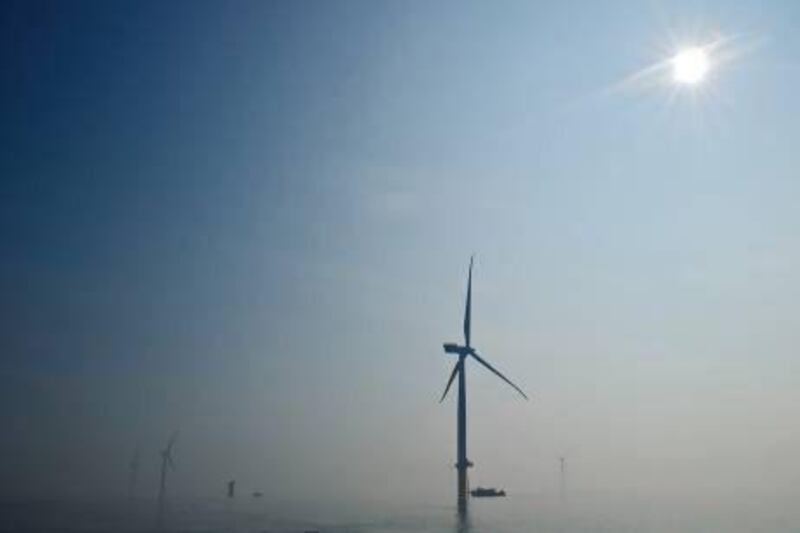ABU DHABI // On June 29, 2009, the capital made history when it was chosen as the home of the first international organisation to be based in the Middle East - the International Renewable Energy Agency (Irena).
The announcement at a conference in Sharm El Sheikh, Egypt, came after rivals Germany and Austria withdrew in the face of overwhelming support for the UAE.
Enthusiasm for Abu Dhabi was considerably more muted five months earlier, with members of the fledgling body surprised to receive the bid, recalls Adnan Amin, the agency's director general.
"It came as a shock to everybody, out of the blue," he said. "There had been an assumption that it was going to be in a European country, and the candidacy of the UAE wasn't taken very seriously at first - it was a fossil fuel economy, it was a small country."
He said the Masdar renewable energy initiative and the clean energy vision the emirate had put forward helped to win over the doubters.
"Masdar had a very powerful effect on the imagination of people," Mr Amin said. "To create a zero-emission city in the middle of the desert in an oil-producing country was a conundrum that intrigued people, so that attracted them to the idea."
But it was a lobbying campaign spearheaded by Sheikh Abdullah bin Zayed, the Minister of Foreign Affairs, that convinced countries around the world of the UAE's case.
"At Sharm El Sheikh it was clear to everyone that the UAE had won," Mr Amin said. "There is a strong legacy left by Sheikh Zayed, the founder of the nation, very much articulating a vision of sustainability. There was a sense that this is a sentiment that's imbued in Abu Dhabi.
"Another factor was that Abu Dhabi offered superb infrastructure. You have proximity to two major airports that are basically global hubs, and you have top-class communication infrastructure - roads, building, everything that can accommodate a global agency."
Mr Amin highlighted a less tangible benefit of the decision to choose Abu Dhabi - that creating a multilateral organisation brings countries together and develops international understanding and cooperation.
"Given the state of the world, it was a very compelling thought that there was no global agency of any type either in the Middle East or the Muslim world," he said. "To place an agency of this type in Abu Dhabi - a very cosmopolitan, inclusive city - as an example of how international cooperation could work was a very important consideration for many political decision-makers."
Mr Amin said the agency had received "phenomenal" support from the Abu Dhabi authorities over the past four years.
"Not only in financial terms but in terms of diplomatic support and their flexibility in accommodating the needs of an international organisation," he said. "An independent international organisation has to be guaranteed privileges and immunities.
"It's a learning process for both sides, and they've risen to the occasion and given us whatever we needed. They've given us the security and the operating environment where our staff can flourish.
"You see a commitment to a sustainable future being expressed in so many ways. Then you see the emergence of a new forum - Abu Dhabi Sustainability Week in January has become the global meeting place for the renewable energy community every year.
"All of these things have come together in a very seamless and mutually reinforcing way."
The major renewable energy source in the region is, of course, solar, which Mr Amin said had massive potential.
"The solar resources of the Middle East could power the entire world easily," he added.





